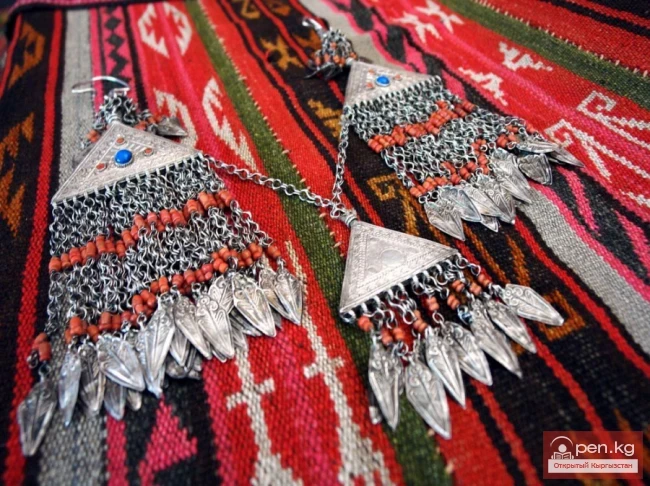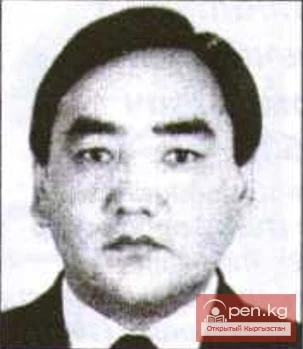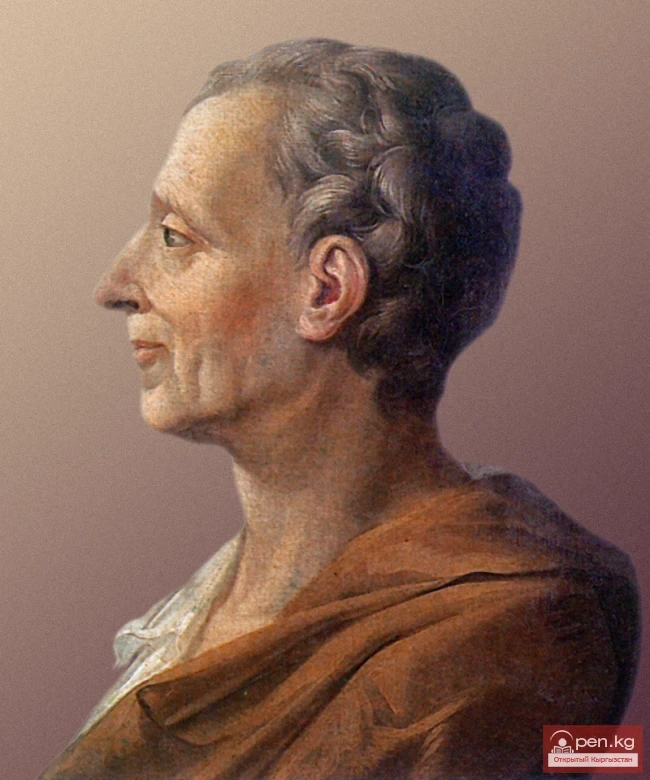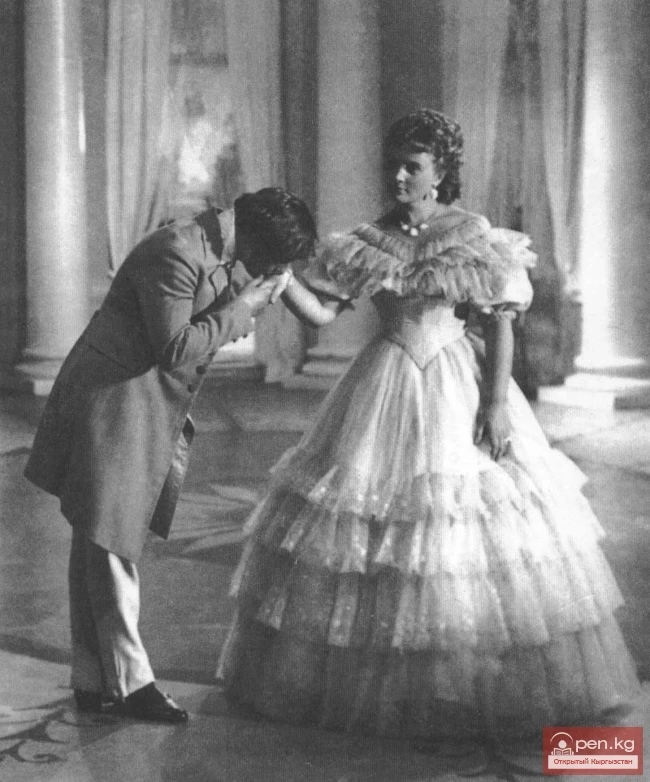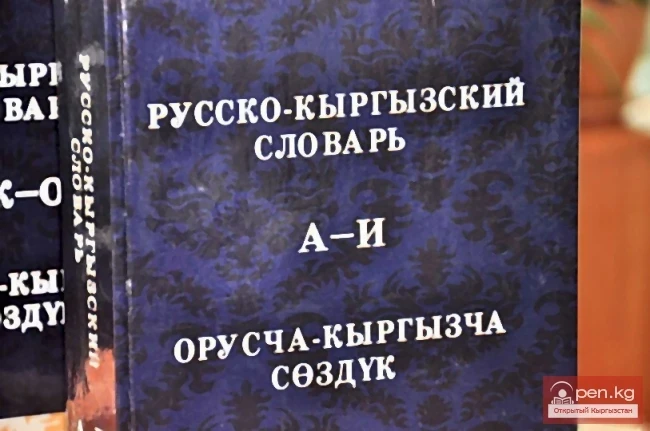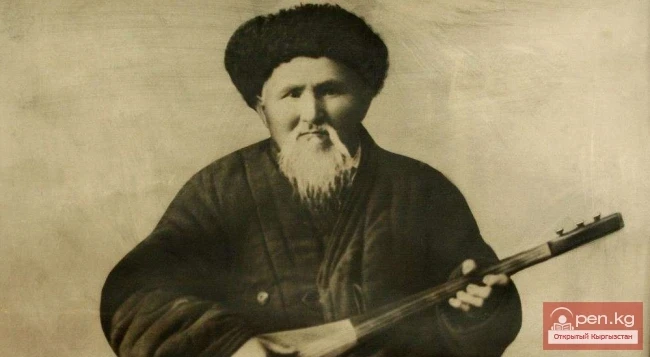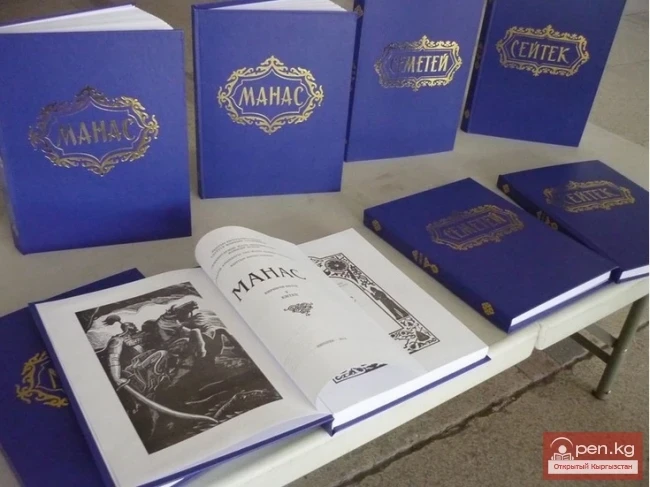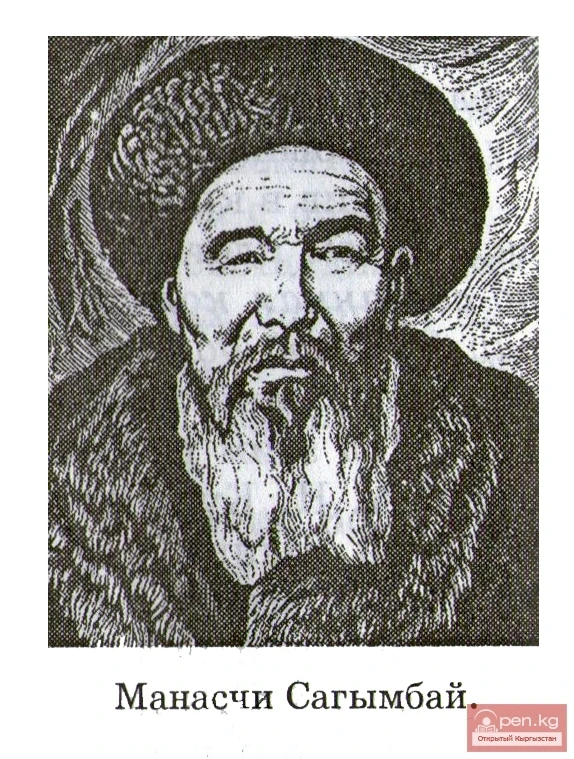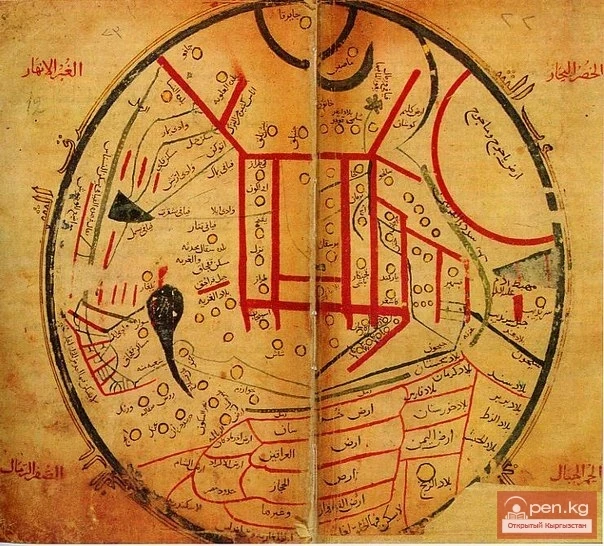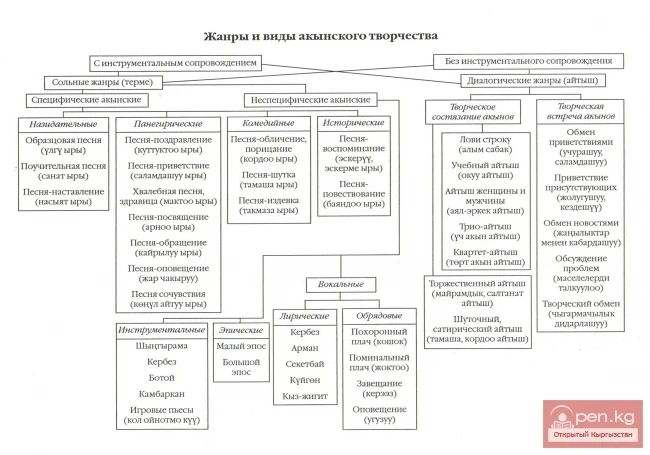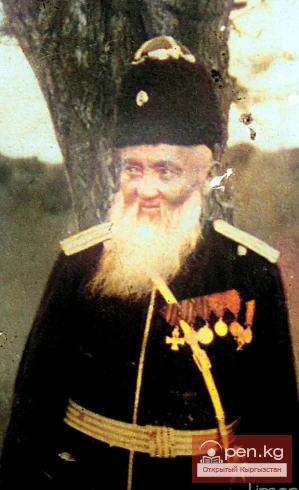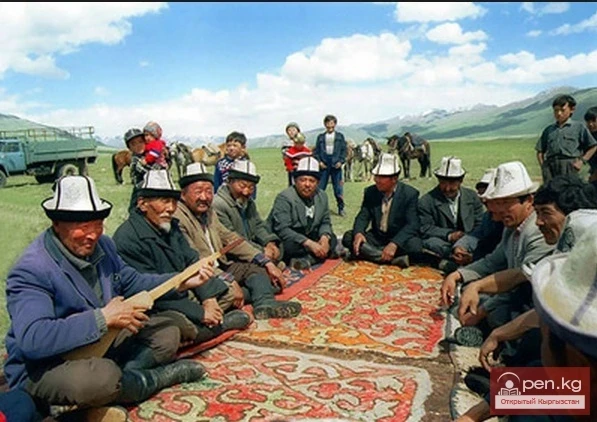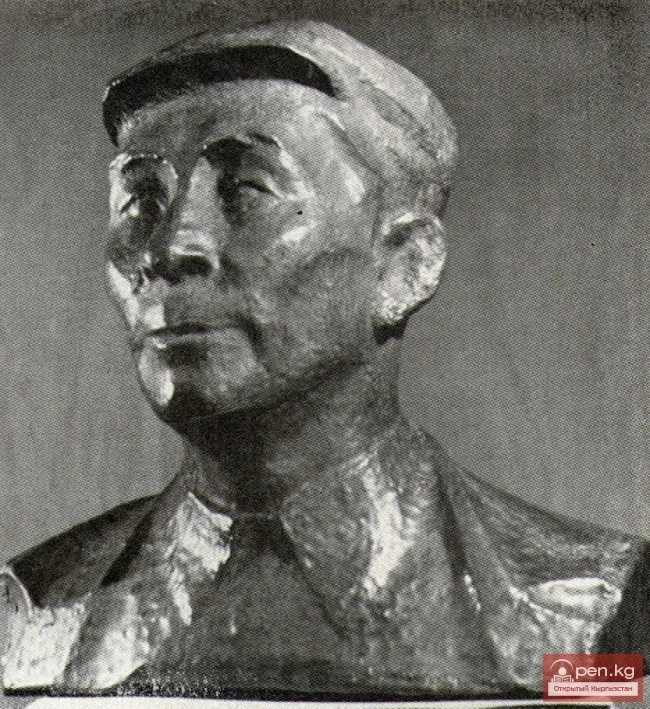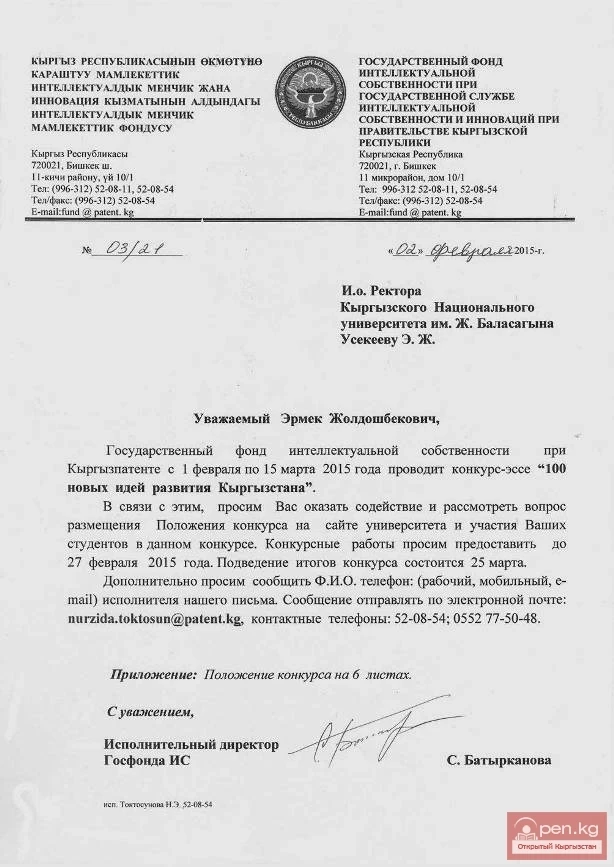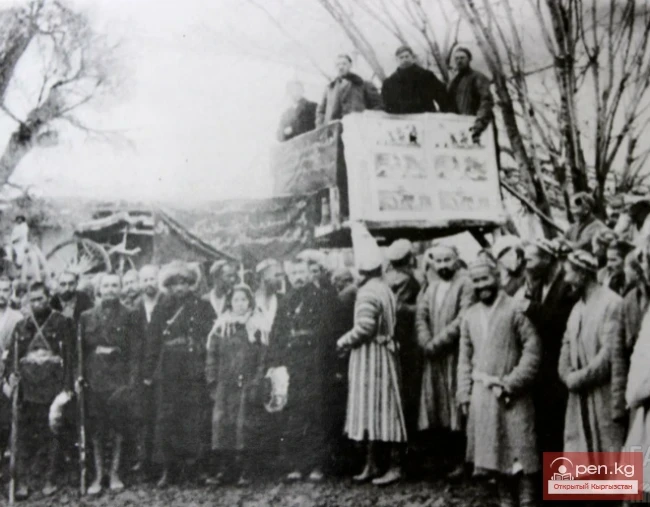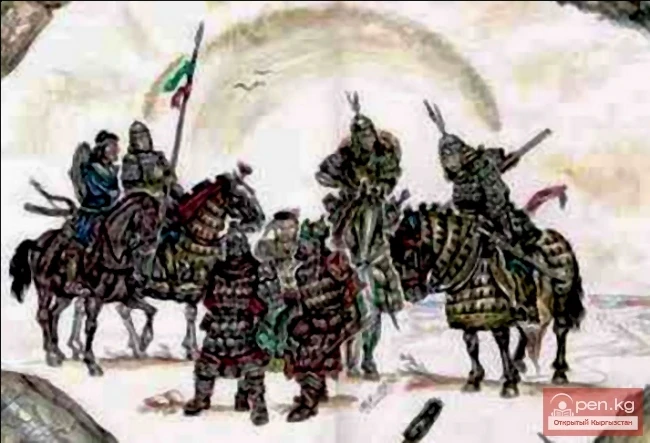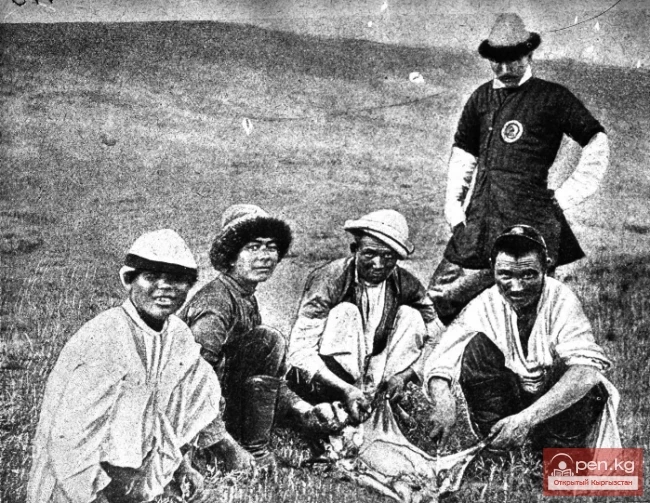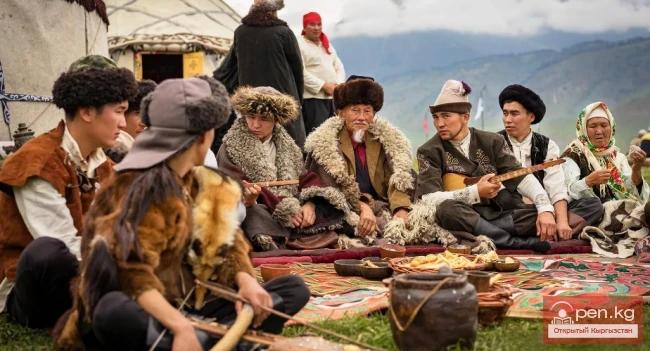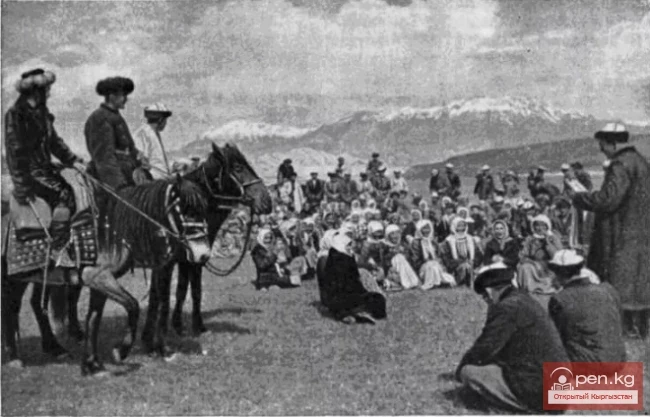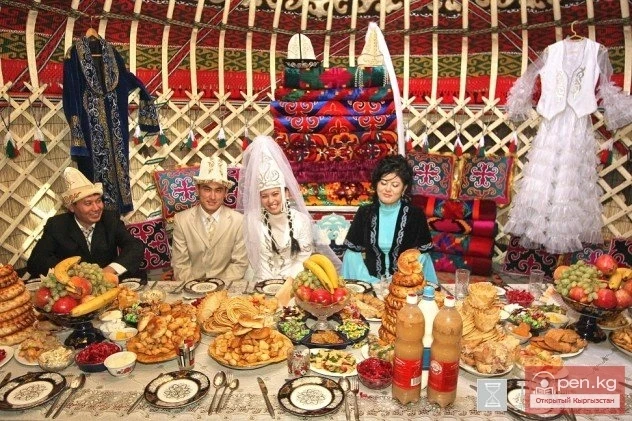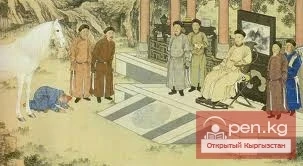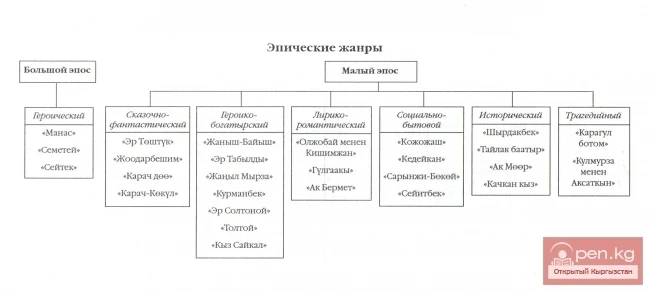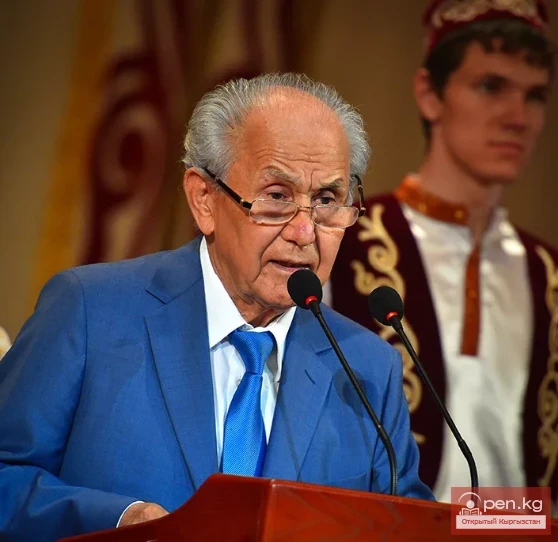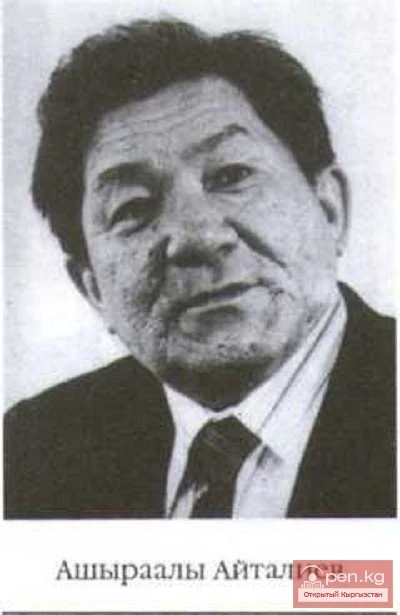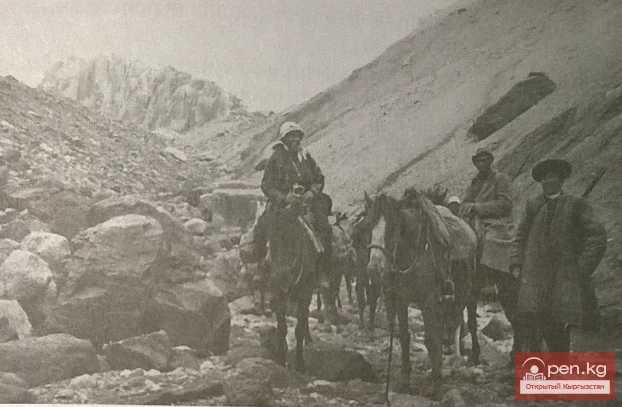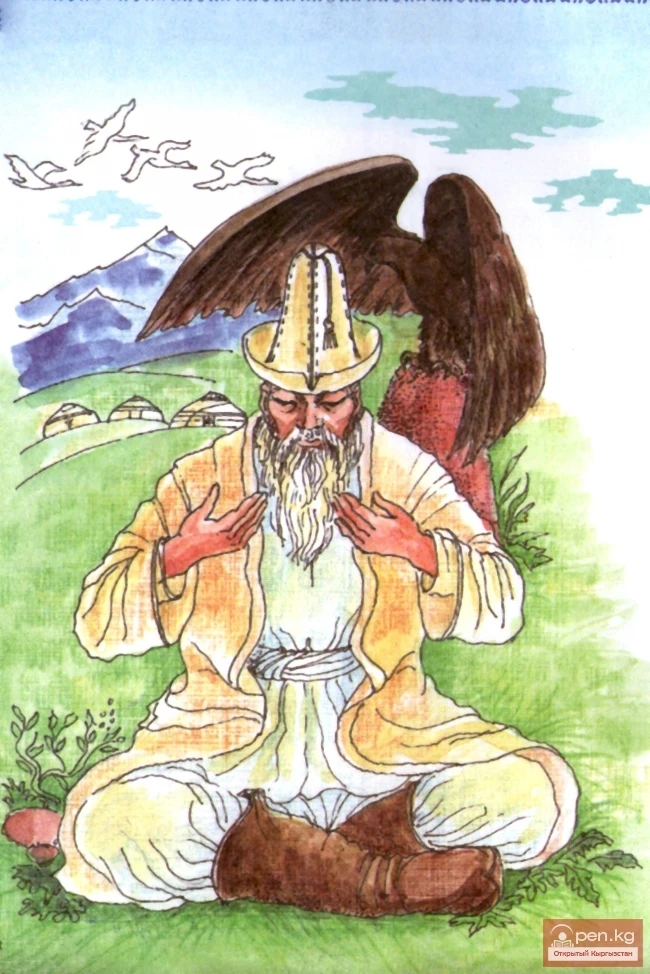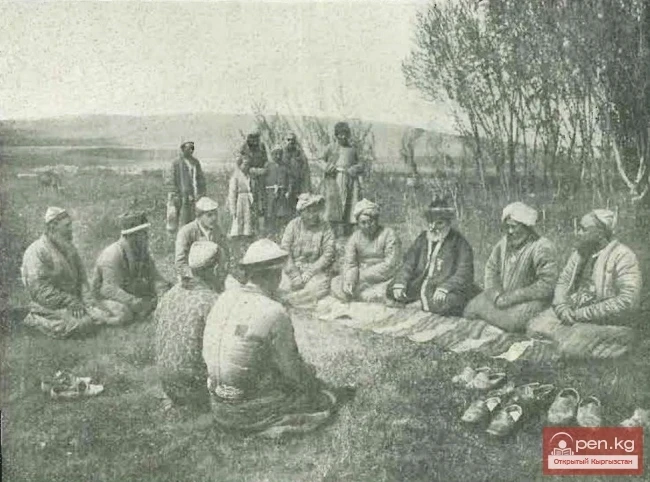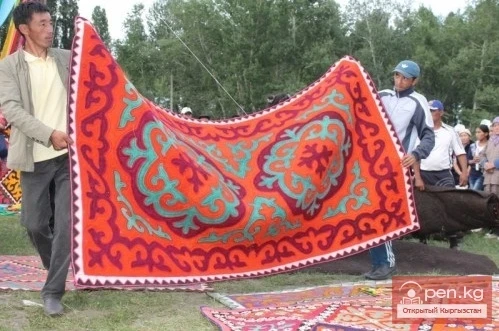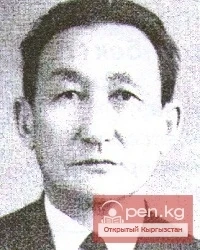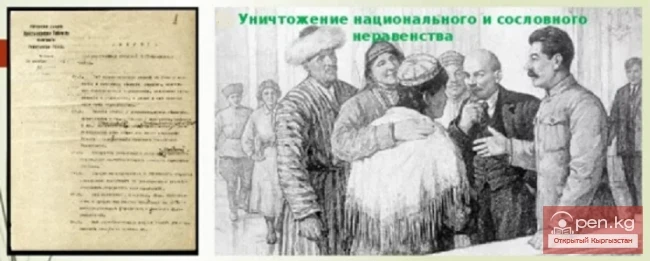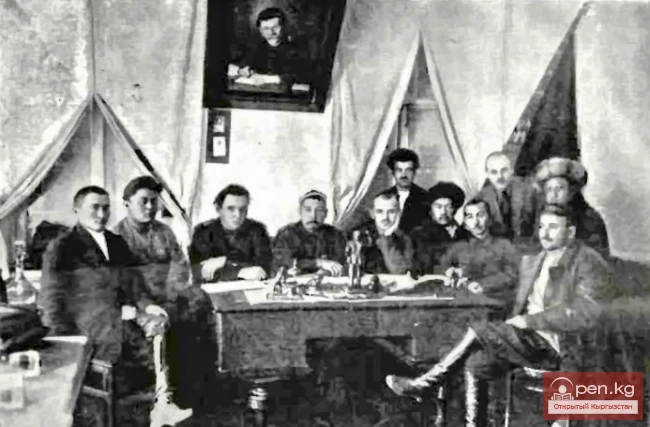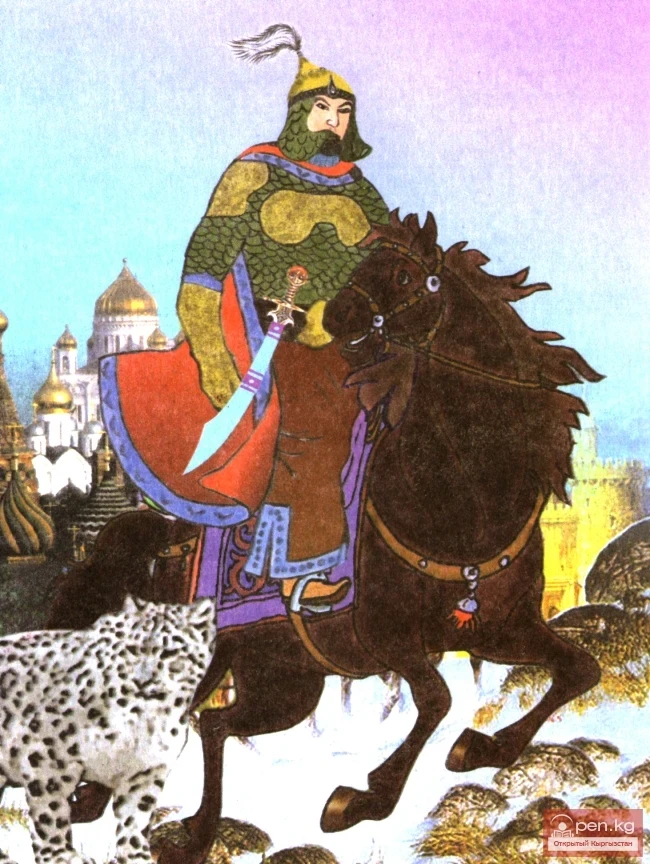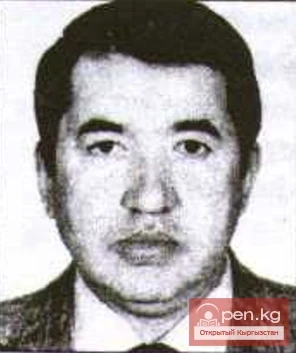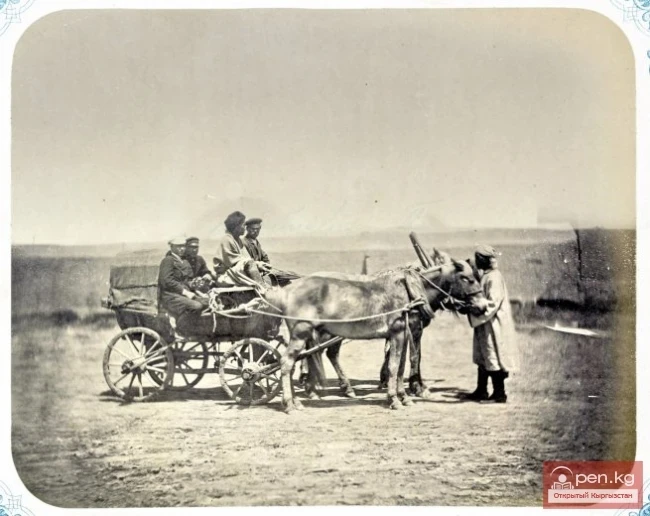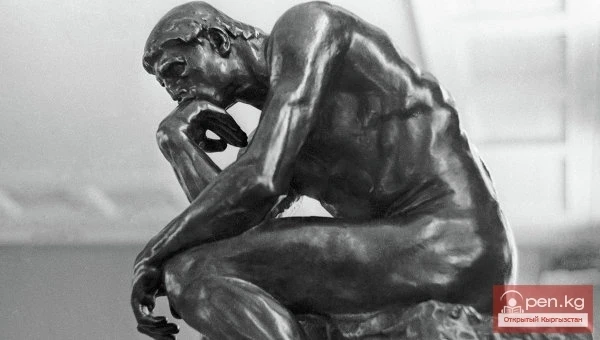
The spiritual culture of the Kyrgyz people, expressed in the philosophical and poetic creativity of akyns, is characterized by a person's striving for happiness and the search for paths to perfection. The issues of nurturing morality, humanism, and compassion occupy a significant place in the philosophical poetry of Kyrgyz thinkers, and therefore it can be rightly considered a collection of moral and ethical norms of human behavior in Kyrgyz culture.
A distinctive feature of Kyrgyz folk philosophy is a keen interest in the problem of morality and etiquette. A number of scholars link this circumstance to the proximity to Chinese sources, which have always been characterized by an increased interest in ethical issues.
The history of the development of ethical and philosophical thought among the Kyrgyz people can be conditionally divided into three stages, the first of which is associated with the names of Kyrgyz thinkers of the late Middle Ages: Asan-Kaygy, Tolubai Synchi, and Sanchi-Synchi. The Kyrgyz people rightly call them legendary thinkers, folk sages - akylmans. Since the representations of Kyrgyz thinkers Asan-Kaygy, Tolubai-Synchi, and Sanchi-Synchi were formed based on folk legends, the sayings of these folk sages have reached our days in fragments, not in their entirety.
The era of late medieval times, with its patriarchal-feudal structure, presents a number of moral tasks. It is undeniable that morality in a class society has always served as a means of governing the people, but in the oral-poetic creativity of akyn-thinkers, one can see an objective view on issues of morality and ethics. They are concerned with the eternal question of the struggle against "evil" and the dream of establishing "universal well-being".


